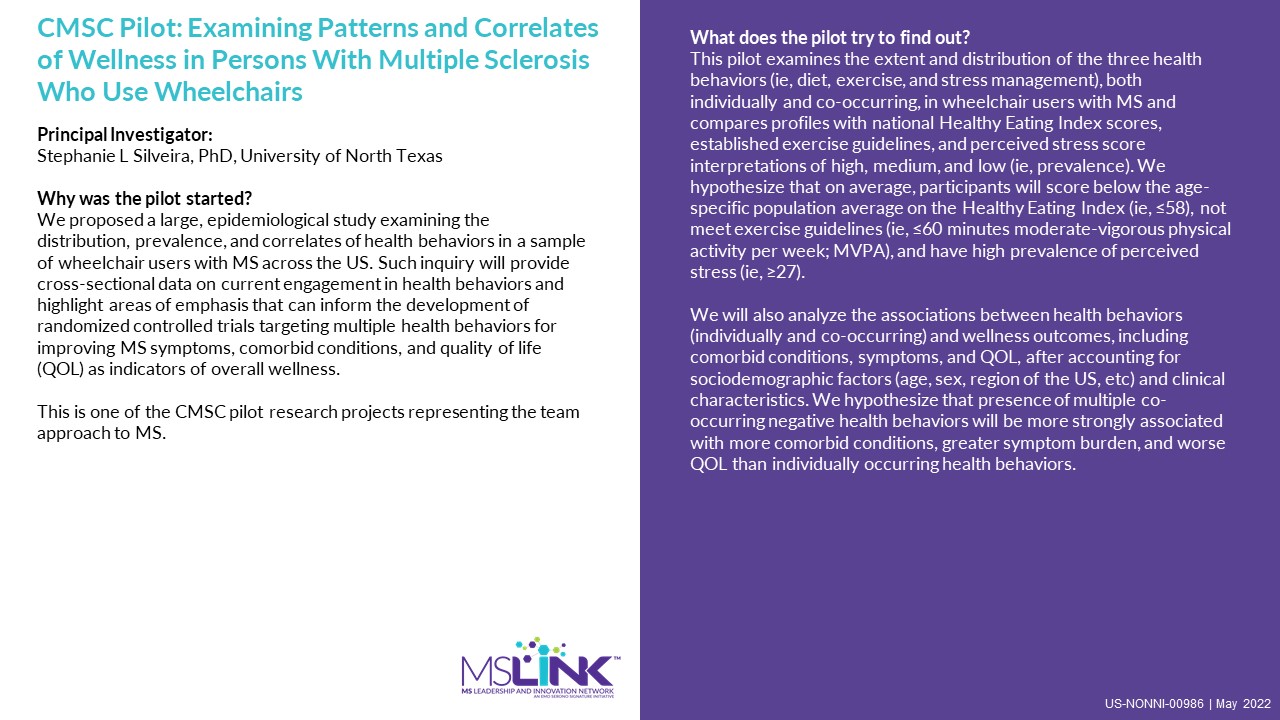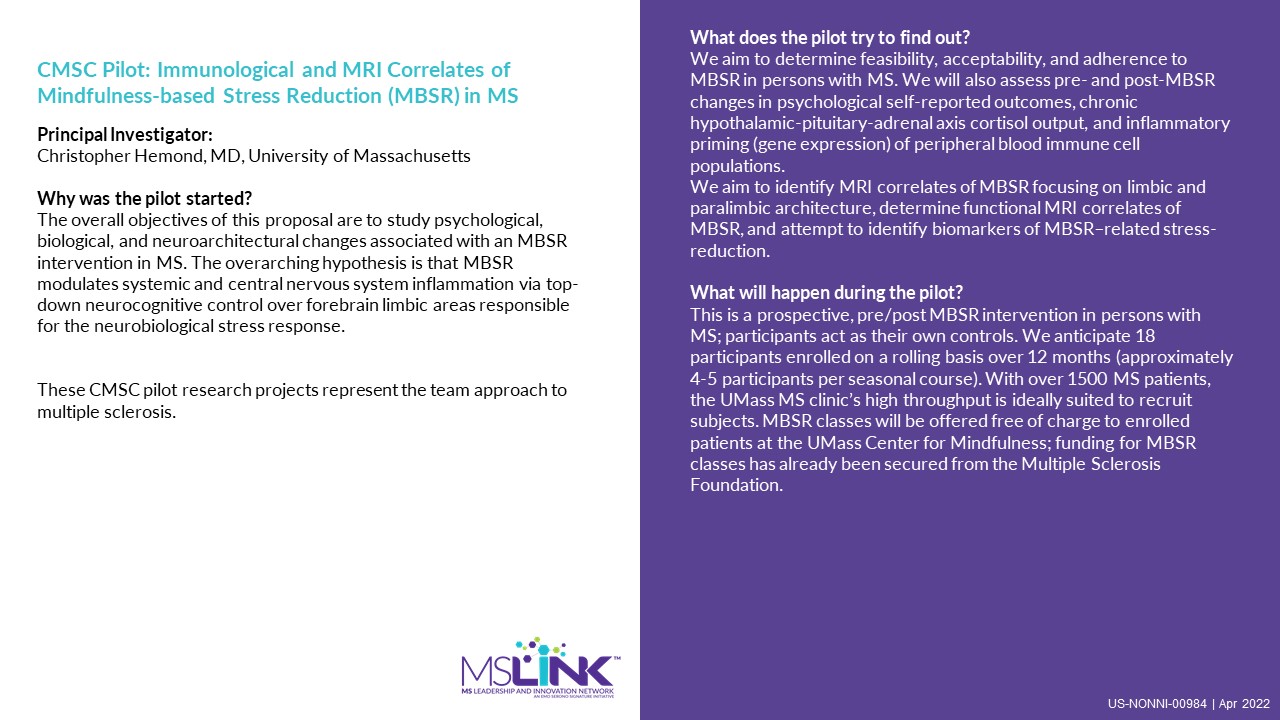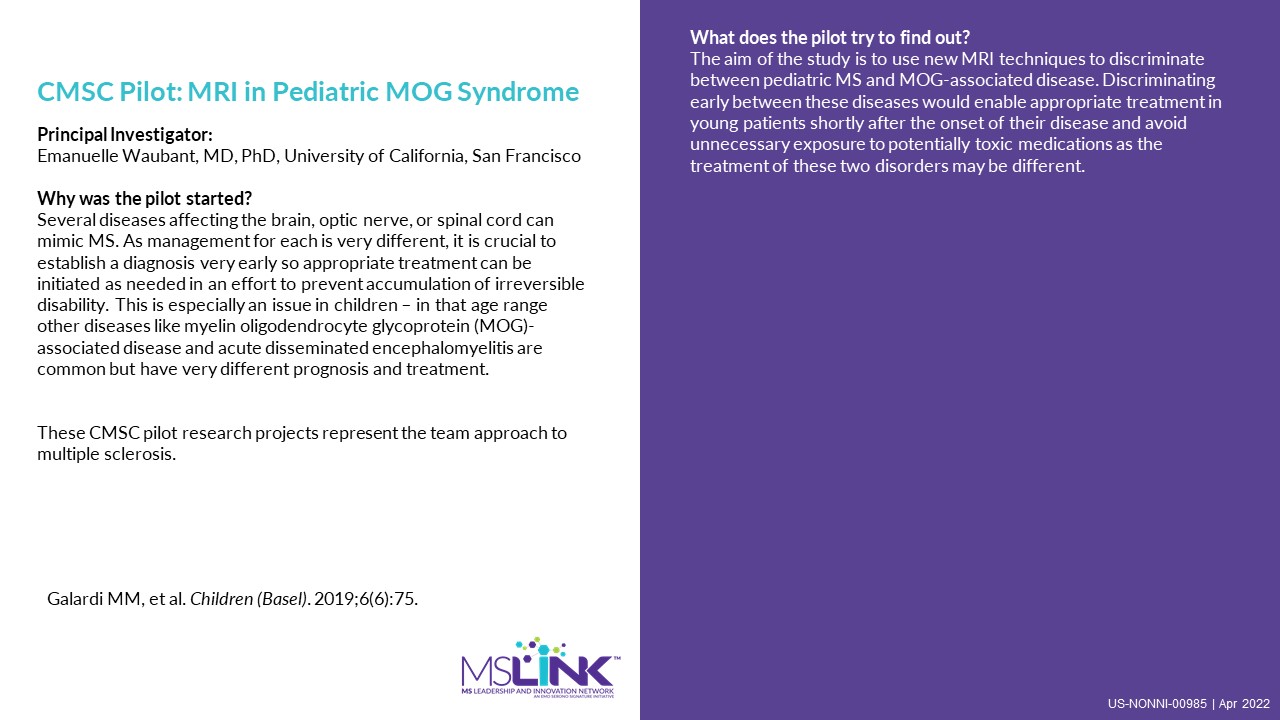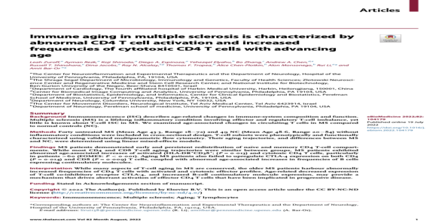Immunome Pilot
This study aims to examine the T cells, B cells, and innate immune cells of people with MS to describe age-related changes and compare them against people without MS
Partner: Bar-Or, Univ. of Pennsylvania
Status: Complete

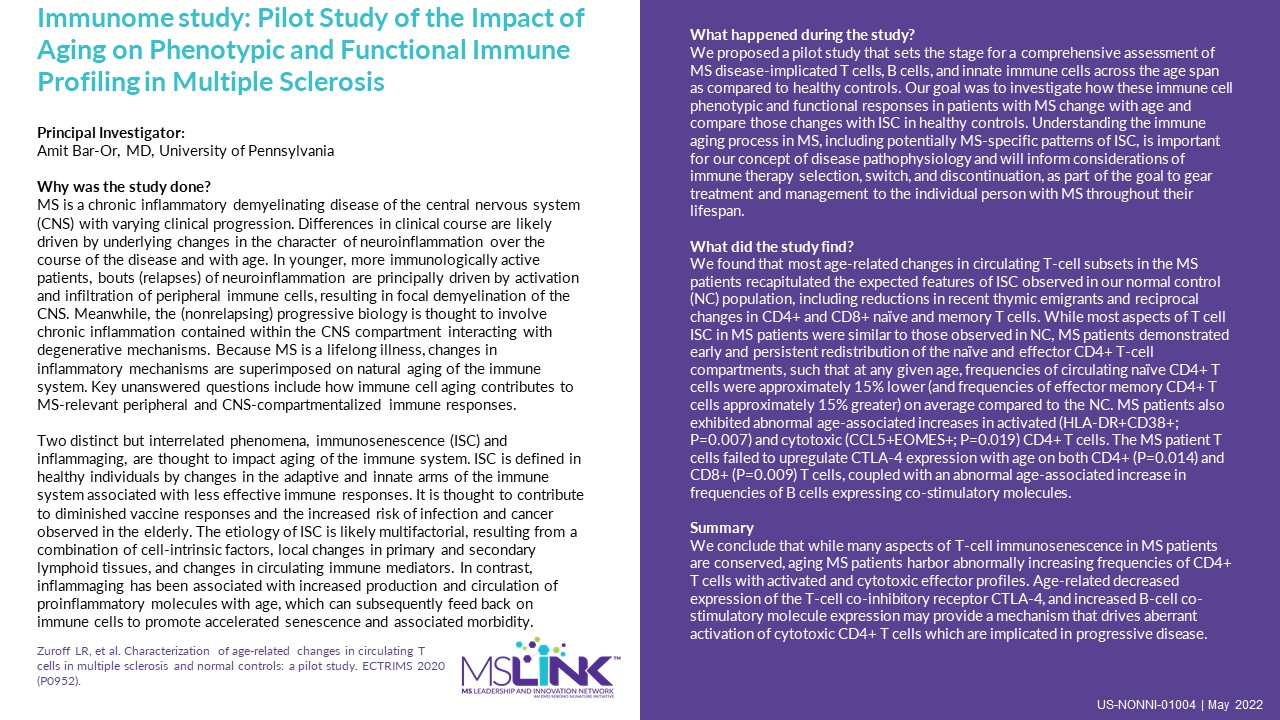

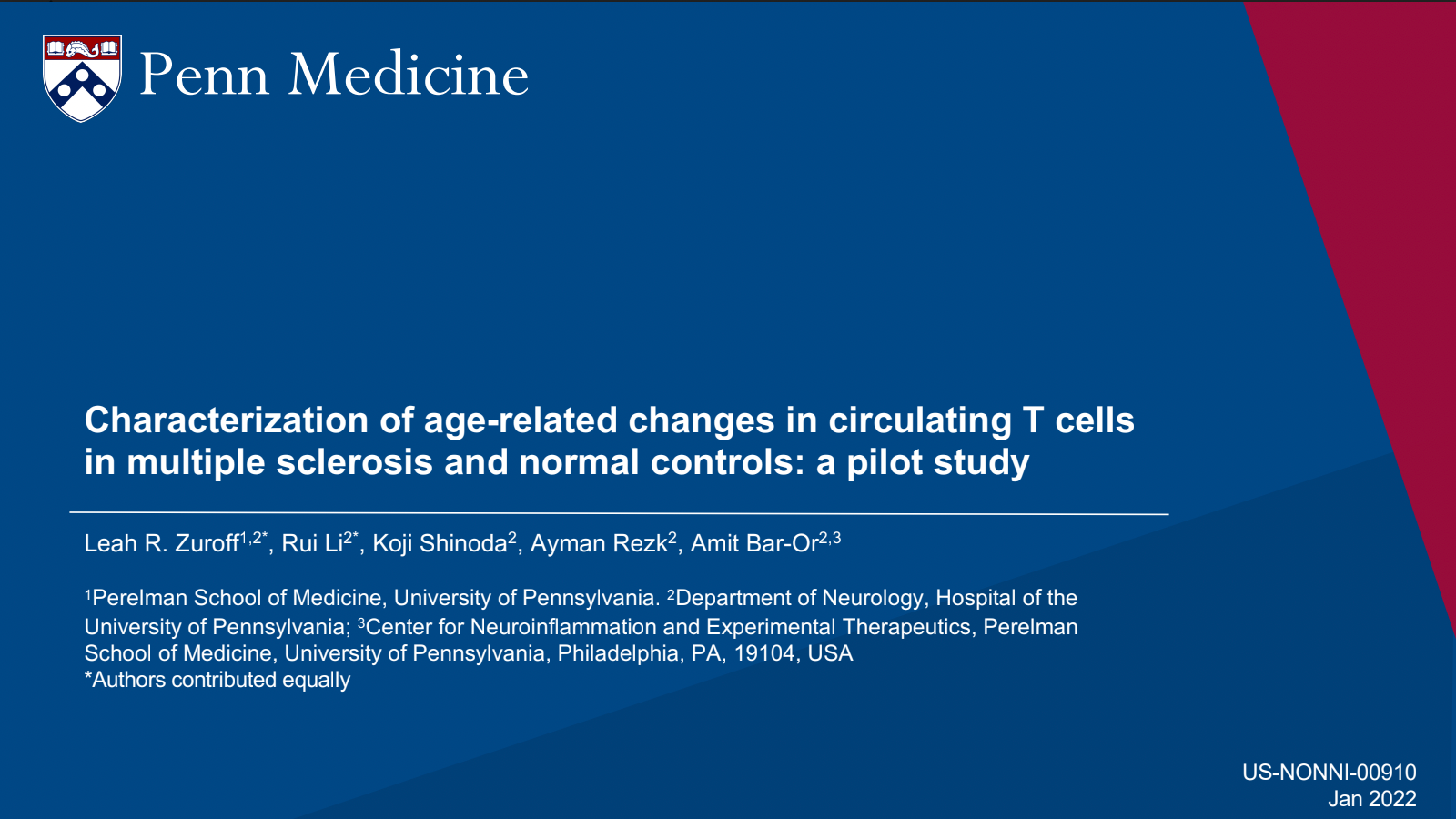
NMSS Pilot X 3
The Aging in MS NMSS pilot program aims to advance understanding of how aging contributes to the pathogenesis and natural history of MS progression. It also hopes to reveal potential targets and develop strategies that slow down or stop disability progression
NMSS Pilot Grant 1: Cellular Senescence in Autoimmune Demyelination - This study aims to explore the role of cellular senescence in experimental autoimmune demyelination, an animal model of MS
Partner: Oksenberg, UCSF
Status: Complete
NMSS Pilot Grant 2: Determining the Effect of Circadian Rhythms in Oligodendrocyte Lineage Cell Dynamics With Age in Multiple Sclerosis: This study aims to explore the effects of circadian rhythms in oligodendrocyte lineage cell dynamics using a mouse model of MS
Partner: Gibson, Stanford University
Status: Complete
NMSS Pilot Grant 3: Association of Senescent Cells With MS progression: This study aims to explore the association between the biological age of a person with MS and their MS disease severity
Partner: Graves, UCSD
Status: Complete

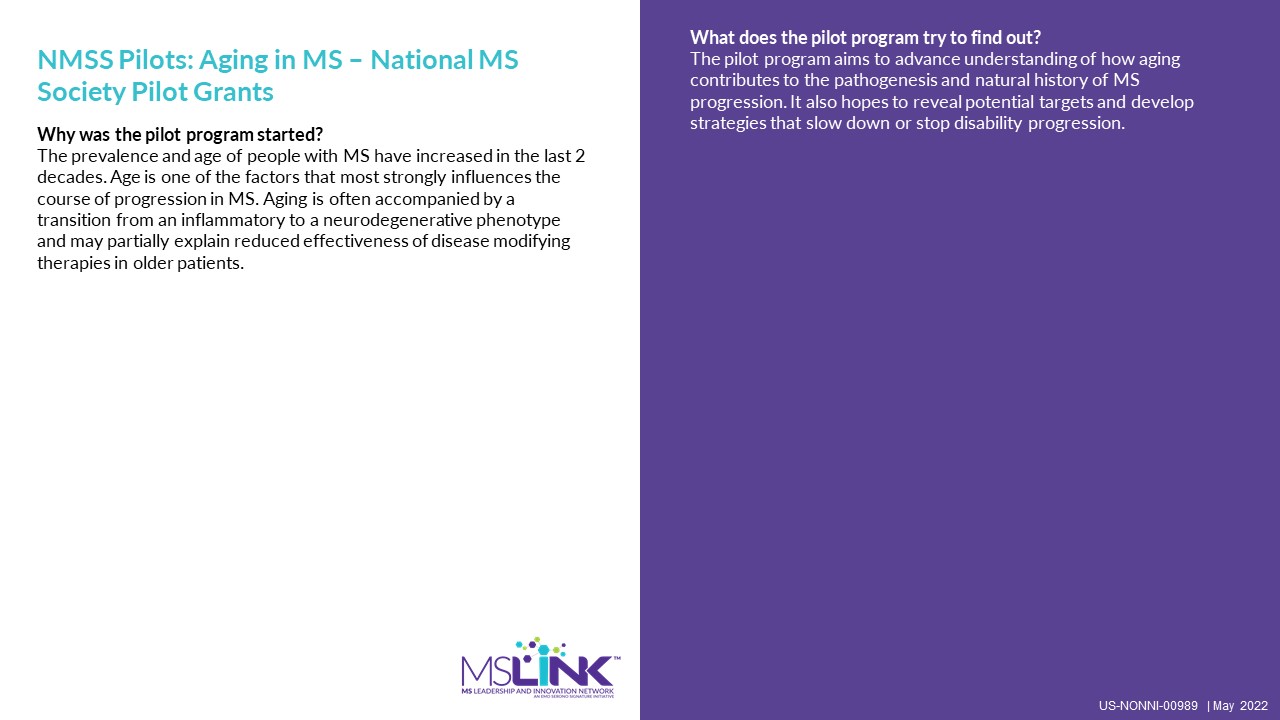
MS Brain Bank Harmonization
This study aims to explore mechanisms related to the general brain atrophy seen in MS by assembling a collection of frozen neocortical samples from 6 brain banks into a single dataset with harmonized phenotypic information and a coherent set of proteomic data
Partner: De Jager, Columbia University
Status: Ongoing

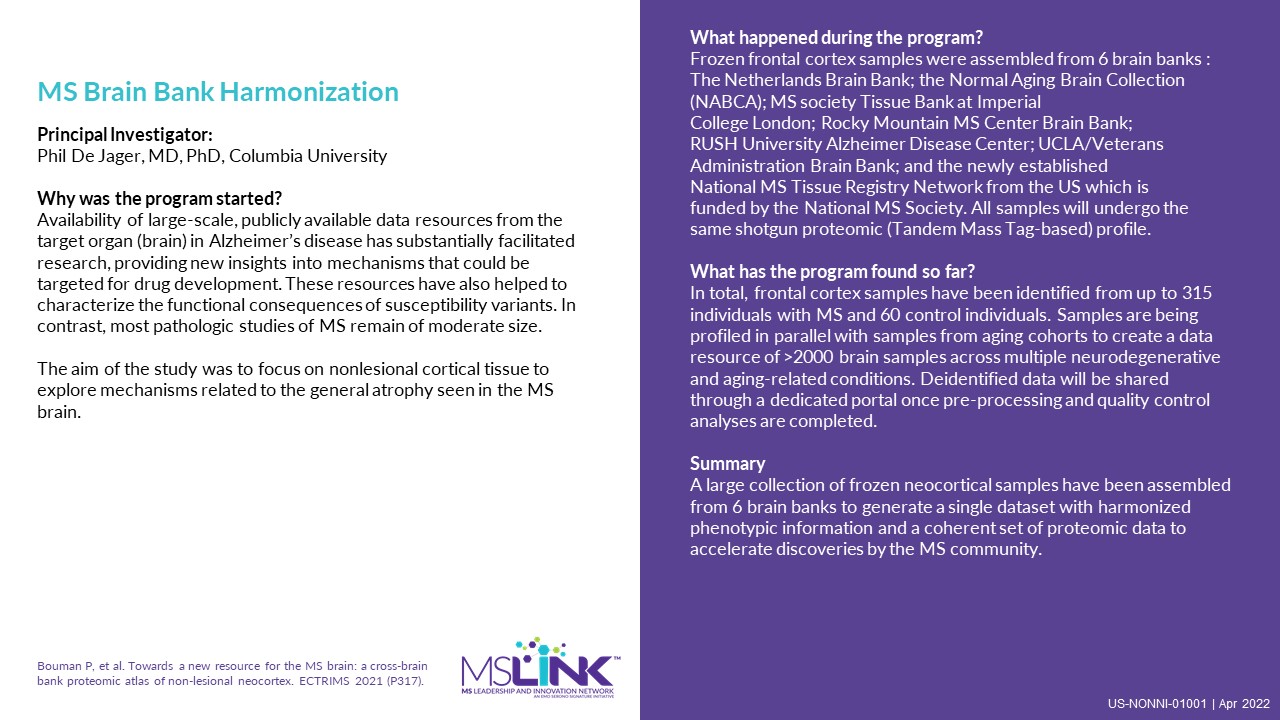

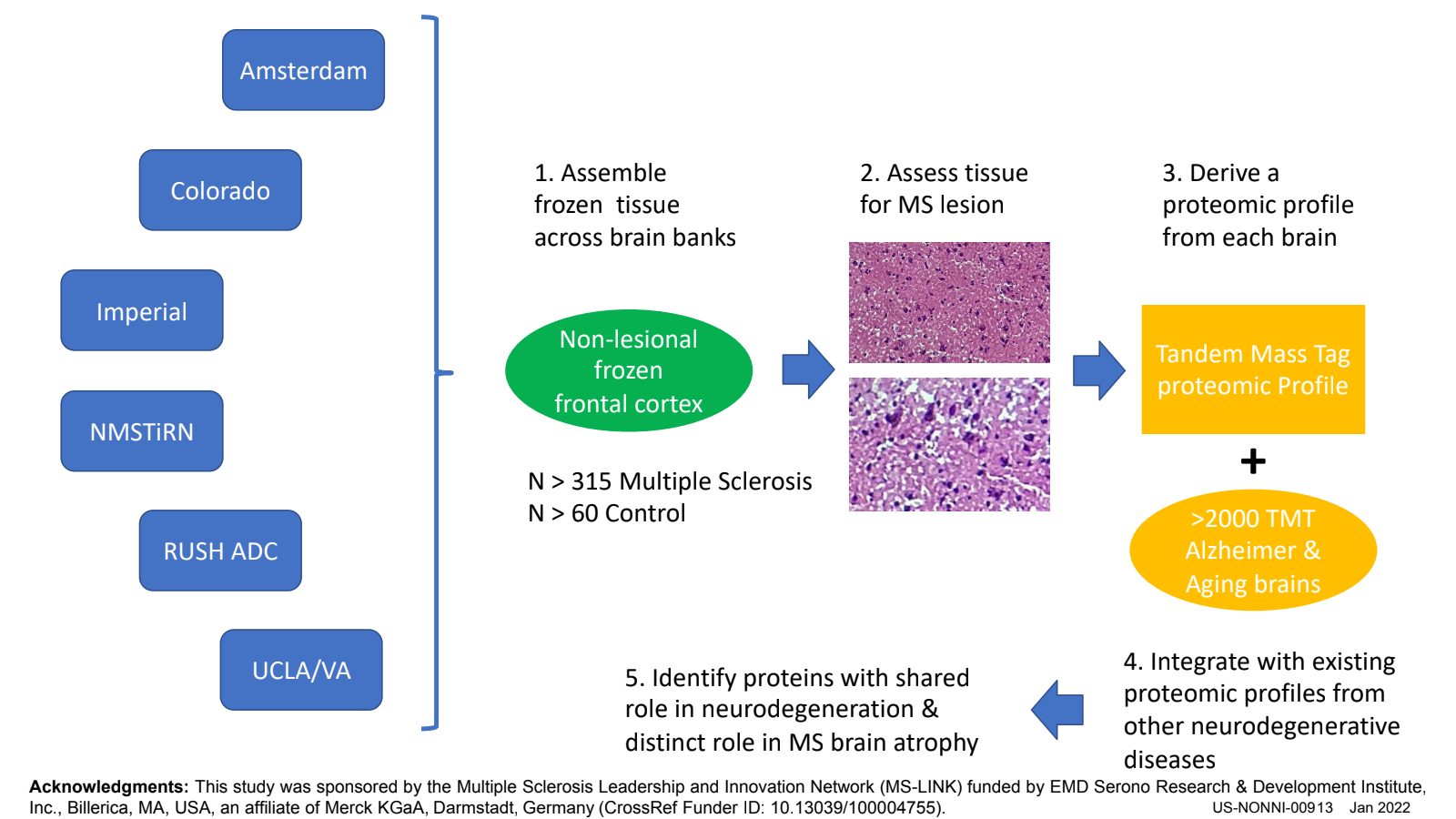
CMSC X 4
The CMSC pilot research projects aim to support unique, novel ideas with the potential to help improve MS patient outcomes and quality of health.
1. Examining Patterns and Correlates of Wellness in Persons With Multiple Sclerosis Who Use Wheelchairs: This epidemiological study aims to examine the distribution and prevalence of health care behaviors, and their association with wellness outcomes, in a sample of wheelchair users with MS across the US
Partner: Silveira, University of North Texas
Status: Complete
2. Immunological and MRI Correlates of Mindfulness-based Stress Reduction (MBSR) in MS: This study aims to examine the psychological, biological, and neuroarchitectural changes associated with Mindfulness-based Stress Reduction (MBSR) in people with MS
Partner: Hemond, University of Massachusetts
Status: Ongoing
3. MRI in Pediatric MOG Syndrome: This study aims to use new MRI techniques to differentiate between MS and MOG-associated disease in pediatric patients
Partner: Waubant, University of California, San Francisco
Status: Complete
4. Understanding Psychiatric Comorbidity in Multiple Sclerosis Using Genomics
Partner: Kowalec, University of Manitoba
Status: Complete

